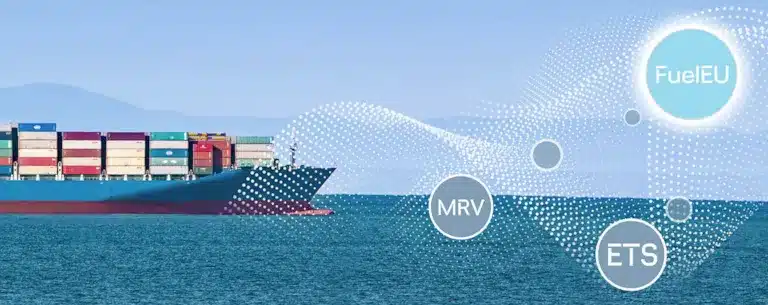FuelEU storm brewing for shipping

Following the phased introduction of the EU Emission Trading Scheme for shipping, the industry is now preparing for the FuelEU Maritime regulation, effective from January 1, 2025. This regulation requires a significant reduction in greenhouse gas (GHG) intensity, with initial targets set at a 2% cut. Non-compliance could lead to substantial financial penalties.
According to OceanScore, a Hamburg-based maritime technology firm, the container, ro-pax, bulk carrier, and tanker segments are particularly vulnerable. Their analysis predicts €1.345 billion in total FuelEU penalties for the industry in 2025, derived from an examination of 13,000 vessels operating within the EU/EEA. The container segment is expected to face the highest penalties, comprising 29% of the total, followed by ro-pax at 14%, and tankers and bulk carriers at 13% each.
GHG intensity reduction targets will progressively tighten, reaching an 80% reduction by 2050. Shipowners need to adopt proactive strategies to mitigate costs. Albrecht Grell, managing director of OceanScore, emphasized the importance of understanding FuelEU costs for effective planning and budgeting.
Grell also highlighted the complex relationship between the liable party for penalties and the party responsible for emissions, often the charterer. This underscores the need for robust monitoring, reporting, and contractual frameworks.
zero44 releases the first publicly available FuelEU Maritime Calculator
FuelEU is part of the broader effort towards shipping decarbonization. Alternative fuels like ammonia and hydrogen, along with the necessary onshore bunkering infrastructure, are gaining traction. However, scaling up fuel production remains challenging due to high investment costs and complex regulations.
The Getting to Zero Coalition’s report notes a disparity in participation between developed and developing nations and calls for a comprehensive regulatory framework to support zero-emission technologies. The report recommends ratifying the HNS Convention, developing a liability and compensation regime for alternative fuels, and fostering stronger collaboration among stakeholders.
Overall, shipping companies must define strategies for fuel choices, handle compliance balances, and develop efficient contractual and administrative processes to navigate FuelEU and move towards full decarbonization.
